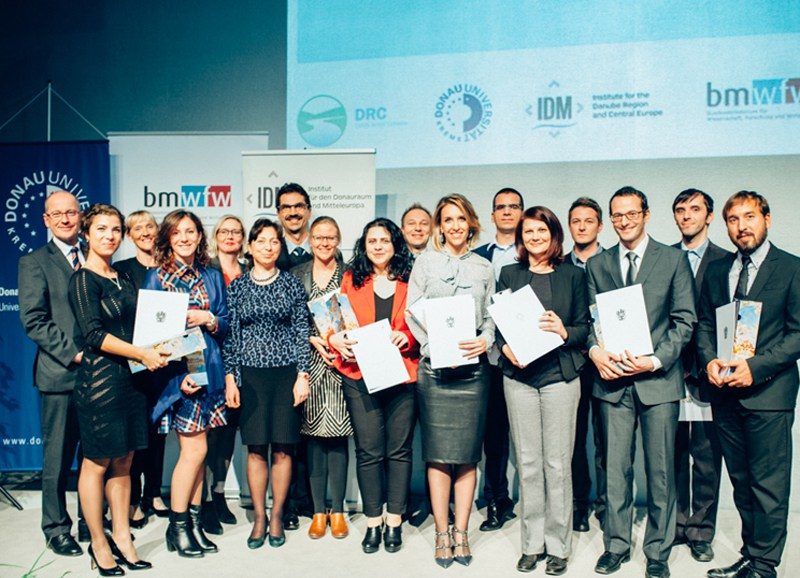Deadline: May 31, 2018
Nominations are invited for the Danubius Young Scientist Award 2018. The award seeks to highlight the scientific work and talent of young researchers and enhance the visibility of the scientific community in the region. Moreover the award encourages young scientists to engage themselves in the scientific examination of the multifaceted issues and questions specifically related to the Danube Region. This award will be granted to 14 young scientists – one in each country that is part of the EU Strategy for the Danube Region.
The Danubius Award was created in 2011 by the Austrian Federal Ministry of Education, Science and Research (BMBWF) and the Institute for the Danube Region and Central Europe (IDM) with the intention to honor persons with extraordinary achievements in their scientific activity and output in relation to the Danube Region.
Award
- The award will be endowed with 1,200 EUR for each winner of the young scientist award.
Eligibility
- Candidates for the Danubius Young Scientist Award can come from all scientific disciplines;
- Scientific excellence and innovative approach of the academic work;
- Thematic relevance of the scientific work for issues/problems of the Danube Region;
- Relevance of the scientific work beyond the national borders;
- Potential of the candidate (for example: integration in international networks, participation in scientific projects, publication history, experience in teaching etc.);
- Nominations will be accepted in electronic format and in English language only.
Eligible Countries
Austria, Bosnia and Herzegovina, Bulgaria, Croatia, Czech Republic, Germany, Hungary, Moldova, Montenegro, Serbia, Slovak Republic, Slovenia, Romania and Ukraine
Judging Criteria
- Scientific excellence and innovative approach of the academic work
- Thematic relevance of the scientific work for issues/problems of the Danube Region
- Relevance of the scientific work beyond the national borders
- Potential of the candidate (for example: integration in international networks, participation in scientific projects, publication history, experience in teaching, etc.)
- No formal age limit – BUT Limitation to participants that have received their master/PhD max. 5 years ago (= after 1st of January 2013). Submissions of candidates holding only a bachelor degree will not be accepted
Application
Documents have to be submitted in English language (exception: copy of the academic title received) and have to consist of the following parts:
- Max. 3 pages summary of the scientific work (e.g. thesis, dissertation, journal article, scientific publication, etc.)
- 1/2 page statement explaining the relevance of the work for the Danube Region and as appropriate the relevance beyond national borders
- Curriculum vitae including publication list of the candidate (max. 3 pages)
- Copy of the document related to the award of the highest academic title received (to verify the criteria of max. 5 years after master degree or PhD degree).
Please consolidate/merge parts A to D into one file (preferably in pdf format). Nominations including all relevant documents have to be sent to: [email protected]
NOTE
- The nomination of the award candidate cannot be made by the candidate himself/herself but he or she has to be nominated by their hosting scientific organization (university, academy of sciences, etc.).
- The number of nominations per organization is limited to 3. Every university, academy of sciences or research organization etc. can nominate up to a maximum of three candidates in total; however the three candidates have to come from different faculties or departments, institutes or research groups within the organization.
- An international expert jury will be established that will be responsible for assessing all incoming nominations and for determining a final ranking list.
- The highest ranked candidate from each of the countries of the EU Strategy for the Danube Region will be recommended for the award.
- It is expected that the award ceremony will take place in November 2018
For more information, visit Danubius Young Scientist Award.

